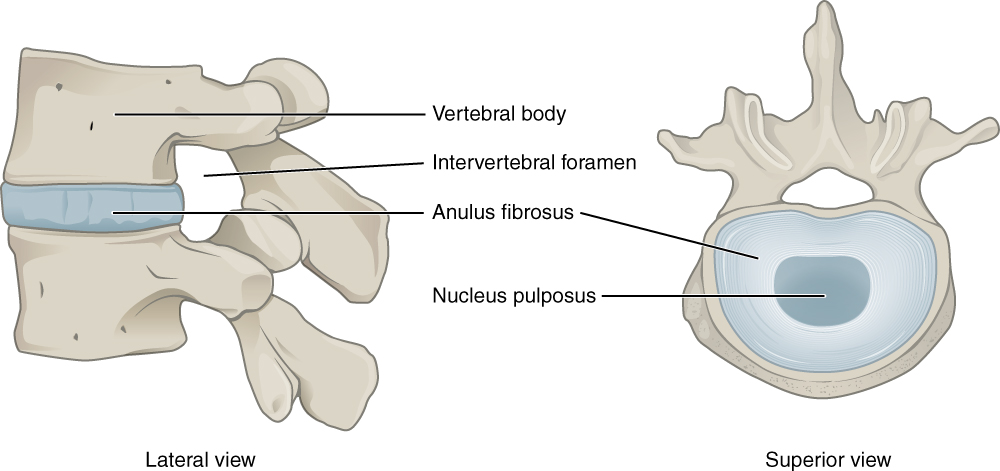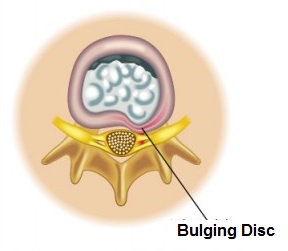Spinex Team
So welcome to the first instalment of Tyler’s Blog series where he’ll discuss general health and wellbeing tips, opinionated common misconceptions as well as patient inspired topics of interest. To kick start we’re going to begin with a question I get asked frequently “What is wrong with my disc?”
So there are a multitude of phrases we hear regularly, “Bulging disc”, “Prolapsed Disc”, “Slipped Disc”, “Herniated disc” and the slightly more dramatic “I’ve blown a disc!” You may have heard “Sequestrated Disc” or “Annular Strain”, the list goes on, especially if you are a back pain sufferer. But what do they all mean? Is there a difference? Let’s find out.
Well firstly, let’s get to the core of the issue. The disc is made of two main parts; the “Nucleus Pulposus”, which is the jelly like substance central to the disc, and the outer disc wall which consists of a fibrous mesh (collagen) called the “Annulus Fibrosus”.

When there is a problem with either the disc wall or the nucleus material, that’s when you’re going to start noticing some dysfunction in the spinal segment, stiffness and eventual pain. Whether it’s from repetitive strain of the disc over time or a sudden impact from an accident or trauma where the disc is overloaded, damage will occur.
We’ll begin with the “Bulging Disc. Now a bulging disc is actually the most minor of disc damage, “Tell that to my back!” I hear you say, so let me explain. This phase of disc injury is where the central nucleus pulposus has pushed its way backward (or forward) against the disc wall, causing the disc wall to bulge outwards.

This bulging disc is also commonly called a “slipped disc”. The disc doesn’t actually slide out of the vertebrae, it just expands. This can cause stiffness as the joint where the disc is damaged doesn’t move as freely. This can lead to low back pain due to the nerves which supply the disc itself being affected. But why does it happen?
A common cause of disc bulge can be associated with small trauma over time such as excessive sitting in poor posture (I wonder what you’re doing right now?) where the disc is exposed to long periods of compression which weakens the disc wall
“But I also have pain down my leg, “sciatica”?” I’ll explain more about that magical phrase another time but one of the causes we often see is a large Disc Bulge, or further still, a “Herniation”. These are other issues which cause sciatica and in my next article I will delve deeper into the subject because for many people, it is leg pain or sciatica which is the pain which causes them the most trouble. More on this next time!
About :
Tyler Hands is an experienced osteopath working with the team at Spinex Disc Clinic. To book an appointment with Tyler call the clinic on 020 7100 4598
Read his bio http://herniateddisc.co.uk/about-the-company/team/
At Spinex Disc Clinic we offer a free initial consultation where you can get a better idea of the appropriate treatment options for you.
Categories
- Show All
- anxiety
- arthritis
- back pain
- chiropractic
- chiropractor
- Chiropractor Near Me
- chronic pain
- desk work
- Disc Bulge
- disc bulges
- disc herniation
- IDD Therapy
- nutrition
- orthotics
- osteopath
- osteopath London
- pillow
- pregnancy
- research
- sciatica
- Shoulder Pain
- Spinal Arthritis Treatment
- Spinal Degeneration
- Spinal Stenosis
- spinal stenosis treatment
- spinex
- sports injury
- stress
- Uncategorised
- Uncategorized
- ViMove
- work







